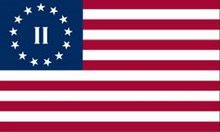What exactly is a militia?
It may depend upon whose definition you use. I like the definition given by one of the founders:
"Who are the militia? Are they not ourselves? Is it feared, then, that we shall turn our arms each man against his own bosom? Congress shall have no power to disarm the militia. Their swords, and every other terrible implement of the soldier, are the birth-right of an American ... The unlimited power of the sword is not in the hands of either the federal or state governments, but where I trust in God it will ever remain, in the hands of the People."Historical Militias
— Tench Coxe, 1788.
The word "militia" is a Latin abstract noun, meaning "military service", not an "armed group" (with the connotation of plurality), and that is the way the Latin-literate Founders used it. The collective term, meaning "army" or "soldiery" was "volgus militum". Since for the Romans "military service" included law enforcement and disaster response, it might be more meaningfully translated today as "defense service", associated with a "defense duty", which attaches to individuals as much as to groups of them, organized or otherwise.
When we are alone, we are all militia units of one. When together with others in a situation requiring a defensive response, we have the duty to act together in concert to meet the challenge. Those two component duties, of individuals to defend the community, and to act together in concert with others present, when combined with a third component duty to prepare to do one's duty and not just wait until the danger is clear and present, comprises the militia duty. Militia
The character of militias in both the United Kingdom and the United States come to us from the days of the Anglo Saxons.
For fifteen centuries it has been a fundamental principle of Anglo-Saxon government--a fact that seems to be quite generally ignored--that every citizen capable of bearing arms owes, in return for his liberty and protection, the duty of personal service to protect and defend his government in time of need. At its base it is an obligatory and not a volunteer system, though, chiefly perhaps because the ordinary need of the State requires the service of far less than the number available, in England until recently, and here as well, the service seems to have been regarded not as a bounden duty but as necessarily voluntary, as, of course, it is under the policy legislatively established. The Colonists brought with them here the militia system indigenous to the land of their origin. [Italics mine] Legal and Historical Aspects of The Militia: Guncite.com.
No other American institution bears a closer resemblance to its ancient English ancestor than our militia. An examination of historic state documents of the colonies shows that all the essentials of the English system were established here. Just as the Second Amendment of our Constitution was borrowed from the Bill of Rights of 1688, so did our colonial legislatures adopt the militia laws of the Motherland. [Italics mine] Ibid.So we can readily see that the use of militias have solid historical basis. The founding fathers were well versed in history, and within the principles they derived from having a Judeo-Christian background, thy wisely decided to create a constitutional mandate for our several states to form militias.
Duties of militias–Riot Control
Militias are attractive forces of order for several reasons. They have often deployed with battlefield weapons—from bayonets to cannon—that can overawe or, if necessary, decimate a crowd armed only with bricks, stones, and pistols. They also, at times, have brought an impressive discipline to riots, acting with a restraint and neutrality beyond the ability of a sheriff’s posse or a squad of special police hastily recruited from among civilians. Unlike professional police forces, they are not paid full-time, but lie mostly dormant until the rare emergencies when they are needed. And unlike regular soldiers, they are—in theory—composed of the local citizenry, and therefore unlikely to oppress the rights of the people. Zachary M Schrag’s notes on militias.Community Service
You can search the internet for other duties performed by the militias of the colonies and some states today. They were called up to put down riots, to aid volunteer firefighters as some were, aid in cleaning up after natural disasters, and serve the community in other ways. Some were the social centers of their communities, providing help and assistance to citizens and service organizations.
Summation
Militias provide safety and a sense of well-being to the communities in which they serve. The colonies feared a standing army, preferring instead local militias. Today, we have a powerful standing army which is more than a match for any state militia. The second amendment is still the best defense against a potential tyrannical government, who would do away with the amendment. It is hoped, that if the federal government ever sent members of the armed forces against the states or individual citizen, that they would refuse to carry out the orders.
If that ever happened, a second war between the states would be fought, and the death toll would be unimaginable.


No comments:
Post a Comment